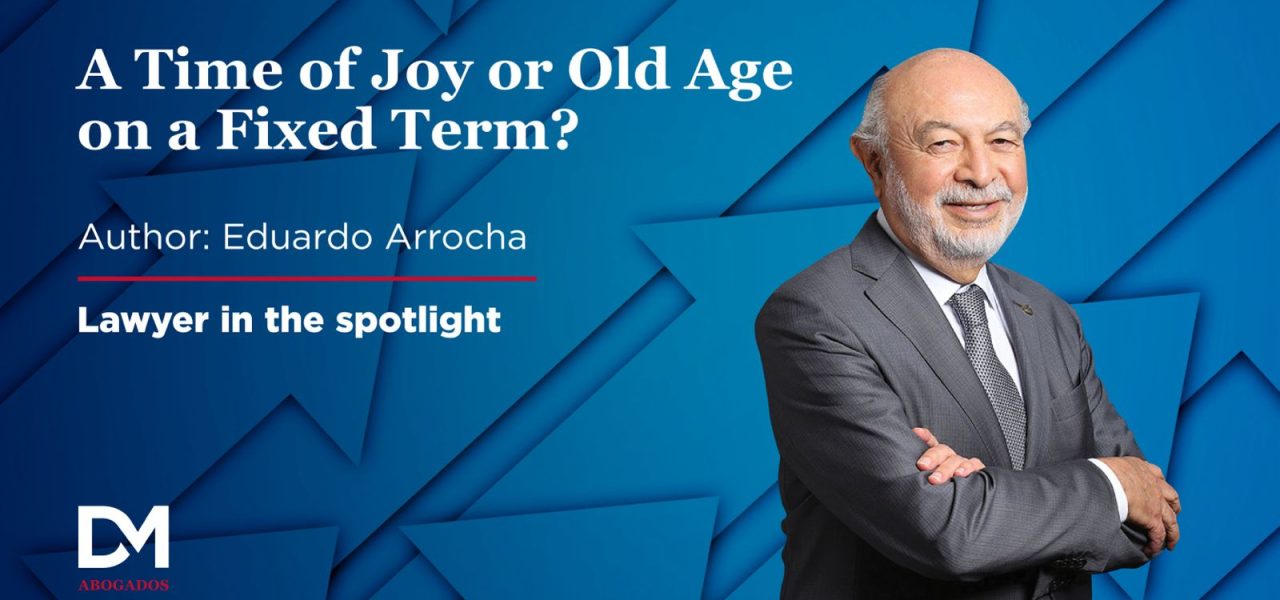I vividly remember this question, asked by someone I deeply admired and hold fond memories of. I had the fortune of meeting him as a colleague when I was around thirty-eight years old, an age when you still feel young but also recognize that you are reaching maturity, solidifying your career, your family, and all the responsibilities that come with being a conscious adult.
At that time, I was working as the legal director of a pharmaceutical company, where my colleague was the medical director. Beyond his profession, he had an incredibly vast, almost Renaissance-like knowledge, an admirable charisma, and a joyful nature that made for long and delightful conversations. He was way older than me, having arrived in Mexico from Spain in the 1940s, fleeing Franco’s dictatorship. Those were the years when Mexico, in its generosity, welcomed many refugees escaping European fascism, people who, in turn, enriched our country with their knowledge in various fields such as law, medicine, architecture, philosophy, and many other disciplines.
Returning to the question at hand: In the early 1980s, one of my responsibilities was to arrange a retirement plan for the company. This plan would benefit my colleague, who was about to turn sixty-five. I was happy for him, and when I met with him to explain the plan and share the good news, he smiled warmly and thanked me. Then, with a touch of humor and philosophy, he said, “Thank you very much, Eduardo, but I’m not sure if this is a cause for celebration or simply an announcement that I now have old age on a fixed term.” He said it without bitterness, purely as a thoughtful reflection.
From there, we had a deep conversation about the meaning behind his words. Were we stepping into a new phase of life, full of new opportunities and experiences to embrace? Or were we being officially declared old, with our useful life now behind us?
The lesson I learned from him and that conversation was that old age is not a fixed deadline, it is up to us to take advantage of the opportunities life continues to offer. After retiring, he continued giving lectures, studying, and returning to his beloved Valencia. Ultimately, on a trip to Perpignan in southern France, the same place where his exile in search of freedom began, after an enjoyable meal and conversation with friends, he peacefully went to sleep and never woke up. I have always considered that a happy ending.
Most of us have probably met someone like him, someone who has imparted wisdom and served as a role model. For me, he was one. What I share here connects with my own personal experience, which I take the liberty to share with you.
When I had that conversation with my friend, he was retiring, and I was only thirty-eight. At the time, retirement was a distant thought for me. I had just married Maricarmen, my life partner; my sons, Armando and Pablo, had been born; and my life was filled with projects. I left the pharmaceutical company to work independently as a labor law litigator, a specialty I had been passionate about since my student days, when I was actively involved in aviation unions. Later, I became the legal director of a multinational company, overseeing all of Latin America. I worked there for twenty-five years until reality caught up with me, I had turned sixty-seven and, despite my bosses’ wishes, had to retire on January 1, 2010.
At that moment, I had to answer the same old question: Should I embrace this stage with joy, or should I acknowledge that I had now officially entered old age?
Fortunately, I didn’t have to look far for the answer. Like my friend, I chose to view it as a new, beautiful, and joyful chapter of life, one where I had a well-established career, more freedom to teach law (something I had been doing for years), more time to study, play tennis, and witness my children achieve their dreams. I also had the opportunity to contribute to the remarkable project that my dear friends Oscar and Ricardo brought to life with the founding of De la Vega & Martínez Rojas, S.C., a prestigious labor law firm. Being surrounded by young, talented professionals and watching their personal and professional growth was another great gift.
Yes, I am no longer young, but to me, old age is a state of mind, one I refuse to accept. I know there will be an ending, and I strive to make it a happy one.
So, dear friends and colleagues, I ask you the same question: When the time for retirement comes, will you embrace it with joy, or will you declare yourselves officially old? Or, to put it in cars terms: Will you become an old model, or will you turn into a classic?
If I may offer a piece of advice, live your life with love, take advantage of every opportunity, make it worthwhile, and carry it with joy until a prosperous and happy ending.
Finally, to quote the great poet Pablo Neruda:
“I confess that I have lived.”



